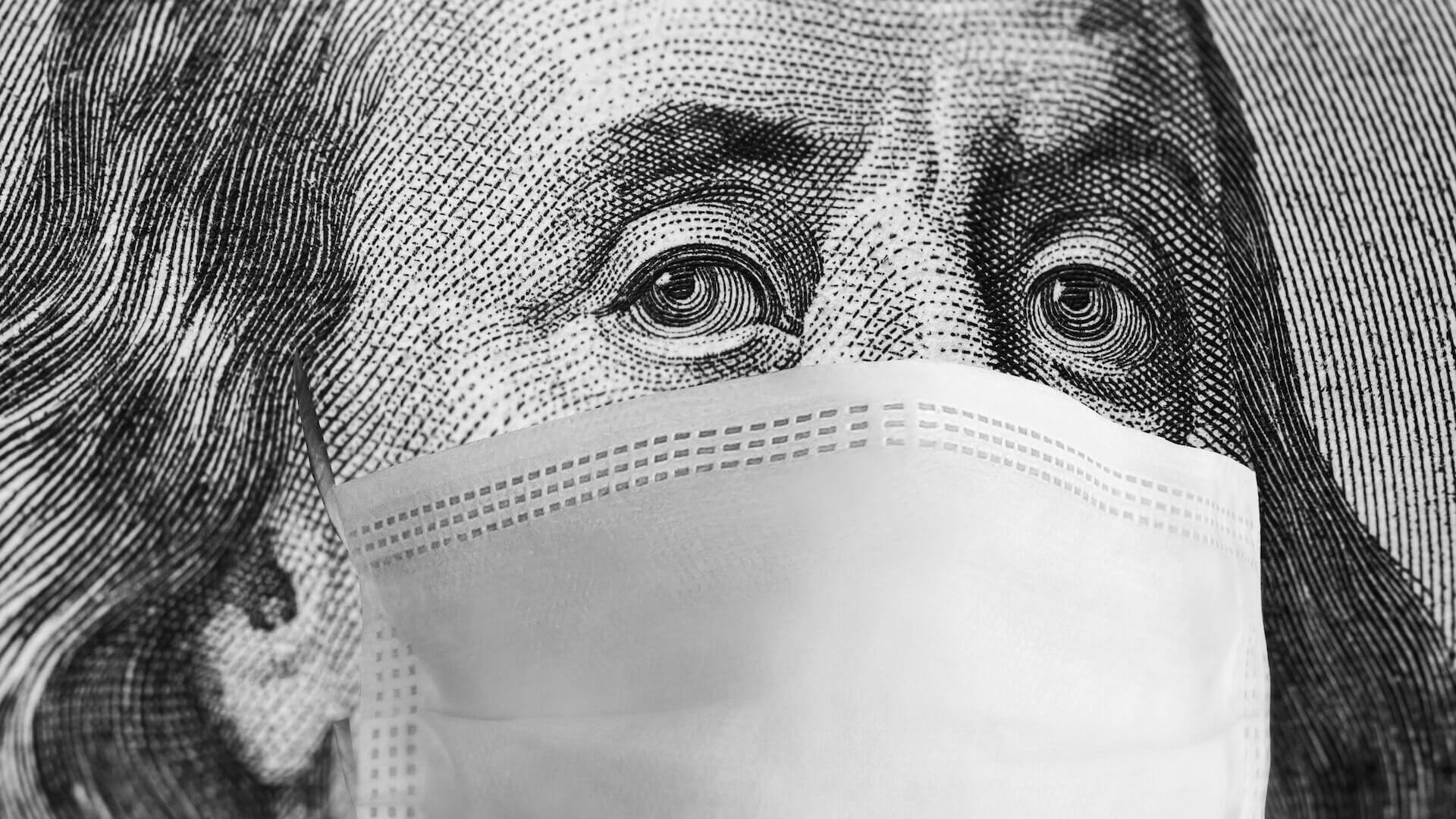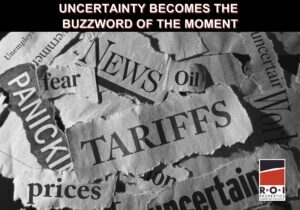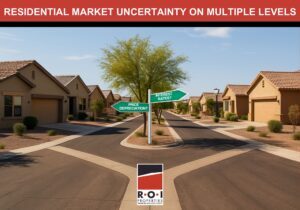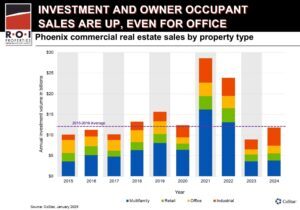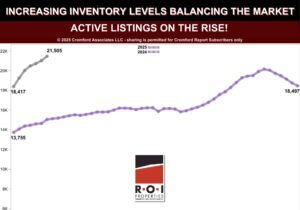The Great Recession vs. the Coronavirus Recession
By any measure, 2020 has been a long year, making it even harder to believe that the last economic recession—the Great Recession—technically ended more than a decade ago. While the Coronavirus Recession technically ended with the Q3 2020 annualized GDP increase of 33.1%, it is R.O.I. Properties’ perspective that we still have not yet seen the impact of COVID in the real estate market to date.
Whereas the Great Recession led with a downturn in residential properties followed by commercial real estate, the next few months are likely to be the opposite. Expect commercial to hit headwinds first. We are already seeing very high default rates in hotels and retail properties. Early indicators are that the office segment could also be problematic down the road, as is the potential with the multifamily sector. Everything depends on the overall vacancy rates as well as whether or not tenants who are under lease are performing on their leases (paying rent under the terms of their current leases). Additionally, many office tenants may choose to not renew their leases, as discussed in our recent blog. If history is a guide, the coming months are likely to see loan defaults resulting in distressed real estate and an increase in receiverships.
A Tale of Two Downturns: The Great Recession vs. the Coronavirus Recession
Earlier this summer, we discussed the challenges of valuing commercial properties, and that situation has not changed. When a property owner has a loss in income, whether from vacancy increases or rent decreases or both, it reduces their net operating income (NOI). The cap rate adjusts up accordingly, based on a potential investor’s risk assessment. At this point, sellers are holding onto pre-COVID-19 numbers; although investors have plenty of capital in formation, they are largely waiting on the sidelines until the market adjusts and enables appropriate return on investment (ROI). Even low interest rates are not moving the needle for commercial real estate buyers in some asset classes (retail, hotels and office).
One notable difference between the Great Recession vs. the Coronavirus Recession is how properties were financed going into the respective downturns. In the mid-2000s, loan underwriting guidelines were loose and collateralized loan obligations and securitized loans were prevalent. Coming into this cycle, we learned our lesson to an extent, with tighter underwriting standards, less speculation, and regulations such as the Dodd-Frank Act.
What is also different this time is that property owners have options regarding loan defaults. With a wide range of foreclosure moratoria and forbearances for residential and some commercial loans, much remains unknown. The longer forbearance periods are extended, the more painful the eventual fallout is likely to be in bankruptcies, Receiverships, and other legal outcomes.
As Arizona State University consulting economist Elliott Pollack noted in an October 22 presentation to the Home Builders Association of Central Arizona: “This is not a typical business cycle. It is a recession caused by the government forcing large parts of the economy to close. Those who are still employed and receiving income will have limited places to spend it and they will be in good financial shape. Those who are not employed due to COVID will be in a very difficult financial situation.”
Recommended Reading: Coronavirus Recession
In “The Great Financial Crisis vs. COVID-19: The Impact on Commercial Real Estate & CMBS,” the analysts at Trepp offer an in-depth comparison of the numbers behind the two crises, such as delinquencies and servicing rates. While the former crisis resulted from market excesses, the latter was caused by an unexpected shock from outside the financial system during a healthy market period. As a result, Trepp is relatively optimistic that the road to recovery will be faster than the long climb out of the Great Recession—with the caveat that commercial property owners will need to be nimble as they navigate the pandemic’s impact on physical real estate space.
R.O.I. Properties specializes in buying, selling and leasing Commercial Real Estate throughout the Greater Phoenix market. In addition, we are an REO broker and are frequently appointed as a Real Estate Special Commissioner in Arizona. To put an expert advocate on your side, contact us at [email protected] or 602-319-1326.
